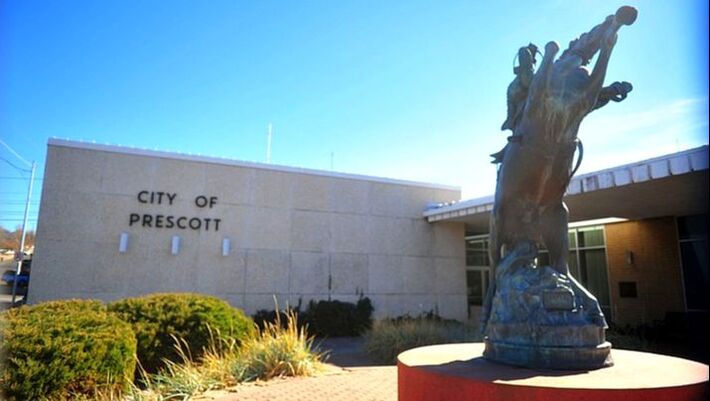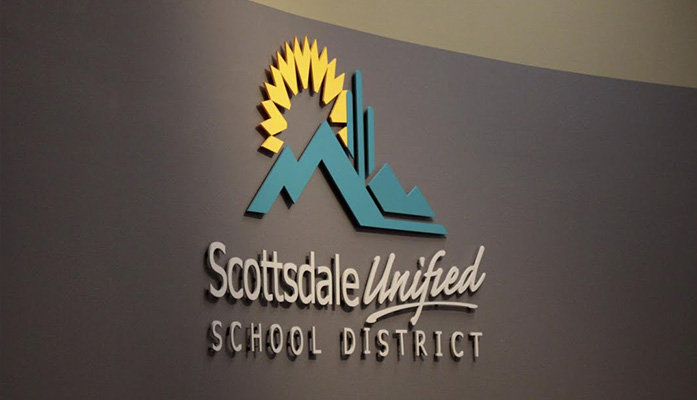
by Jonathan Eberle | Apr 27, 2025 | News
By Jonathan Eberle |
Governor Katie Hobbs has signed SB 1585 into law, a measure that strengthens Arizona’s legal tools for prosecuting child sexual predators. The legislation, introduced by Senate Majority Leader Janae Shamp (R-LD29), received unanimous support in the legislature and directly addresses a legal loophole that had hindered prosecutions in recent undercover sting operations.
The new law modifies the definition of a Dangerous Crime Against Children (DCAC) to include crimes committed against someone posing as a minor—specifically when the defendant knew or had reason to believe that the individual was under the age of 15. Previously, a 2023 Arizona Court of Appeals ruling created ambiguity around whether offenders caught in stings targeting fictional victims could be prosecuted under the DCAC statute.
The change comes in response to two recent undercover operations led by the Pinal County Sheriff’s Office, during which 20 adults were arrested over a four-week period for allegedly attempting to lure minors for sexual activity. However, due to the appeals court’s interpretation of existing statutes, several cases could not be charged as DCACs, limiting the penalties available to prosecutors.
“This legislation closes a dangerous loophole,” said Shamp in a statement. “If a pervert is caught trying to solicit sex from a child by an undercover police officer, the offender deserves to be thrown behind bars—regardless of whether or not an actual child was present.”
Shamp credited Pinal County Attorney Brad Miller for bringing the issue to her attention. Miller emphasized the importance of equipping prosecutors with clear, enforceable laws to hold predators accountable. Under current DCAC guidelines, offenders face harsher penalties, including longer mandatory minimum prison sentences.
SB 1585 passed with bipartisan support, signaling widespread agreement among lawmakers that the legal ambiguity identified in the appellate court ruling needed to be addressed. While sting operations remain a key strategy in identifying potential abusers before they can harm actual children, legal experts had cautioned that unclear language in the law could undermine these efforts.
Now, with the signing of SB 1585, Arizona prosecutors will be empowered to charge offenders caught in these operations with DCAC-level offenses, provided that the defendant reasonably believed the victim to be underage.
The legislation reflects a broader trend in Arizona and across the country toward strengthening criminal penalties for child exploitation and digital predation. States have increasingly looked to clarify statutes around internet-based luring and sting operations to stay aligned with evolving law enforcement practices.
Senator Shamp framed the passage of the bill as a clear statement: “Arizona has zero tolerance for this evil against our kids.”
Jonathan Eberle is a reporter for AZ Free News. You can send him news tips using this link.

by Jonathan Eberle | Apr 26, 2025 | Economy, News
By Jonathan Eberle |
California is poised to lose a significant portion of its oil refining capacity by the end of 2026, as Valero announced the closure of its Benicia refinery—its second largest in the state—just months after Phillips 66 declared plans to shut down its Los Angeles facility. Together, the closures will eliminate roughly 17.4% of California’s total refining output, a shift expected to ripple beyond state borders, potentially triggering gasoline price spikes and supply disruptions in neighboring Arizona and Nevada.
These developments come on the heels of new state regulations introduced under Governor Gavin Newsom, which impose strict oversight on refinery operations. The rules limit when refineries can conduct maintenance, mandate increased inventory storage, and aim to curb perceived “price manipulation.” However, the energy industry and regional leaders argue these measures are accelerating refinery shutdowns and undermining fuel stability across the Southwest.
California operates as an “energy island,” with limited ability to import refined fuel from other U.S. regions due to the federal Jones Act, which restricts domestic shipping to U.S.-built and -crewed vessels. With U.S. shipbuilding capacity far behind that of countries like China, domestic maritime transport remains scarce and costly. As a result, California will increasingly rely on foreign tanker ships for fuel imports—an emissions-intensive, volatile, and expensive solution.
Governor Newsom claims California’s high gas prices are due to refinery “price gouging,” despite his own administration’s lack of evidence. His regulatory push has faced bipartisan opposition, including a joint letter from Arizona Governor Katie Hobbs and Nevada Governor Joe Lombardo warning that new refinery laws could lead to “higher costs for consumers” in all three states. Chevron echoed this concern, stating that the regulations would increase both the likelihood and duration of fuel shortages, while permanently raising consumer prices.
Refineries in California are already operating at or near full capacity. With no new facilities planned—especially as the state pushes to ban new gas-powered car sales by 2035—any closure tightens supply margins. The upcoming shutdowns will reduce daily refining capacity to 1.34 million barrels, well below the state’s consumption level of 1.8 million barrels per day, necessitating a shortfall of over 140 million barrels per year.
Due to California’s requirement for a specialized gasoline blend, few out-of-state refiners can meet demand, further narrowing supply options. These vulnerabilities were recently exposed when the temporary shutdown of the Martinez refinery sent gas prices soaring across the region, including in Arizona and Nevada.
With California gas prices already the nation’s highest—averaging $4.86 per gallon—experts warn that future supply shocks could bring about even more dramatic volatility and potential fuel shortages across the Southwest.
Jonathan Eberle is a reporter for AZ Free News. You can send him news tips using this link.

by Staff Reporter | Apr 26, 2025 | News
By Staff Reporter |
Prescott residents are citing concerns over what they believe to be a progressive slant directing the city’s 2025 General Plan.
The latest draft of the general plan was rolled out for last month’s city council meeting. State law requires cities and counties to introduce growth-related plans every decade. These plans must include maps, diagrams, objectives, principles, standards, and plan proposals pertaining to land use, circulation and transportation, open space, growth areas, environmental planning, public services and benefits, and water resources.
Communities with populations over 50,000 persons must also include plans for conservation, recreation, extensive transit, public services, public buildings, housing, rehabilitation and redevelopment, public safety, bicycles, energy, and neighborhood preservation and revitalization.
The plan focuses on five “livability” goals: resiliency and sustainability (fire, environmental planning, water resources, climate, and energy); community connection (circulation or transportation, open space, wildlife corridors, and digital connectivity); great places and neighborhoods (land use and growth areas, historic preservation, recreation, dark skies, tree city USA, and bike and pedestrian paths); economic competitiveness and prosperity (economic development, tourism, growth and cost of development, housing, and the Prescott Regional Airport); and community quality (police, education assets, library, community center, healthcare assets, childcare and youth programs, and arts and culture).
Certain strategies of concern (out of over 300 proposed) outlined in the plan include developing and funding a transit system, changing wood burning stove and fireplace standards, redeveloping stormwater infrastructure to be “green” and more sustainable, changing new development ordinances, eliminating emissions in city-owned buildings, establishing electric vehicle infrastructure, redesigning local streets for lower speeds and multimodal use, and establishing a “Dark Sky” lighting code.
Some of these strategies hinged on the initial or continued reliance on local and federal funding.
A group of concerned, longtime citizens, “Prescott Pulse,” say the general plan would not only adopt California-esque policies, but jeopardize millions in housing, transit, airport, and water federal funding due to likely conflicts with the Trump administration’s prohibitions on diversity, equity, and inclusion (DEI) initiatives.
Specifically, the group cited concerns over the inclusion of language expanding discrimination or harassment protections to sexual orientation and gender expression or identity.
The group also cited concerns over the plan’s extensive focus on enacting climate change policy, as well as the costs for proposed “Vision Zero” speed humps and cameras, lighting retrofits, bike lanes, tree mandates, and the additional property taxes connected with environmental reforms.
“We’ve watched as skewed narratives and incomplete information leave most residents unaware of what’s truly happening in our city council until decisions hit home and it’s too late to act,” said the group in a statement. “Today, our city stands at a crossroads. The divide between low-growth advocates and those who see the need for strategic expansion has never been clearer.”
Prescott Pulse also claims the proposed general plan goes beyond its intended scope of planning land use decisions (land, roads, water, and city growth) by introducing new property rights regulations and taxpayer burdens.
The general plan will appear on the November 4 ballot this year. The city council is scheduled to make a decision on the general plan during their meeting on May 27.
AZ Free News is your #1 source for Arizona news and politics. You can send us news tips using this link.

by Dr. Thomas Patterson | Apr 25, 2025 | Opinion
By Dr. Thomas Patterson |
Like a cruise ship steaming toward an iceberg, America’s economy is headed for disaster.
The federal government reports an interest-bearing debt of $37 trillion. However, the actual unfunded obligations of the government, according to the Medicare and Social Security Trustees’ reports, is an unfathomable $158.6 trillion.
Yet the band plays on. In the latest game of chicken to avoid the dreaded but largely imaginary “government shut down,” Democrats stood fast on the theory that their electoral success depends on shipping the maximum number of dollars out the door. Republicans once again proved an inadequate bulwark. Those taking a principled stand against business as usual were denominated “far-right obstructionists” and run over.
The current Republican plan combines a $4.5 trillion tax cut with doubtful spending reductions of $2 trillion, a plan the Congressional Budget Office (CBO) projects will eventually raise the interest-bearing debt to $60 trillion. Reminder: the Rs are the cost-cutting party.
Trump’s deficit-busting credentials are suspect. During his first term, he added debt at twice the annual rate than Barack Obama did. Nevertheless, he has unleashed a dramatic program of mass firings, contract canceling, and agency reduction/elimination.
Serious cost cutters know that the most effective strategy is to cut where the fiscal impact is high relative to the resistance produced. The DOGE strategy is the exact opposite, already producing highly publicized and resented cuts with no possibility, even if fully implemented, of resolving our debt crisis.
The elimination of all federal civilian employees, no matter how useless and overpaid many are, would save only 3% of the federal budget. To save money, you have to go where the money is. By far the largest “bucket” of federal spending is transfer payments, which are $3.19 trillion of the $6.7 trillion total budget in 2023.
Federal subsidies to states, including Medicaid, cost $1.15 trillion, while debt interest of $.9 trillion is not available for cutting. Purchases of supplies and salaries, which fund the military and all other governmental functions, cost a combined $1.4 trillion, yet provide relatively scant opportunity for significant reductions.
Meanwhile, the two parties dare each other to actually cut transfer payments and “push granny over the cliff.” Trump’s response is to adamantly repeat that he will never in any way “cut Social Security, Medicare or Medicaid benefits.”
This war of words has the unfortunate effect of handcuffing those legitimately trying to plan for the total depletion of the Social Security and Medicare trust funds, scheduled to occur within the decade. It also rules out some of the non-draconian solutions available like work requirements for the able-bodied and gradually raising the retirement age.
When and if we get serious about cost-cutting and generational fraud, a good place to start would be Medicaid, the most abused and inefficient welfare program. Spending on Medicaid has grown an inflation-adjusted 671% since 1990. In fact, as Senator Phil Graham recently pointed out in the Wall Street Journal, the real purchasing power of total government transfer payments is 20 times greater than when the War on Poverty began in 1990, while the official poverty rate remains at 11.6%.
How can that be? Gramm provides the key insight. Eligibility standards for means-tested programs including Medicaid are based on the Census Bureau’s calculations. But the Census vastly overstates the extent of poverty because it doesn’t count as income 88% of the transfer payments, including food stamps, refundable tax credits, and Medicaid itself. This incoherent bias in calculating income eligibility has led to massive waste, far exceeding DOGE’s projected savings.
Interestingly, the CBO in January developed a new metric for determining “poverty” in the traditional sense of not having enough resources to meet basic needs. When transfer payments were deemed income, which they obviously are, the actual poverty rate fell to 0.8%.
This is an opportunity to save substantial sums without harming those actually poor. $1.48 trillion in welfare benefits annually go to families not actually qualifying as poor, using the CBO’s calculation of counting transfer payments as income. Simply using the CBO methodology, combined with work requirements and limiting welfare benefits to those truly in need, would generate meaningful savings if we have the political courage to do so.
Dr. Thomas Patterson, former Chairman of the Goldwater Institute, is a retired emergency physician. He served as an Arizona State senator for 10 years in the 1990s, and as Majority Leader from 93-96. He is the author of Arizona’s original charter schools bill.

by Staff Reporter | Apr 25, 2025 | Education, News
By Staff Reporter |
Scottsdale Unified School District (SUSD) parents are attempting to reverse the relaxation of the district’s dress code.
SUSD surveyed Scottsdale Parent Council (SPC) members about the district’s dress code, which parents criticized for failure to indicate a requirement for students to cover their midriffs.
The survey, shared by Scottsdale Unites For Educational Integrity (SUFEI), only included “genitals, buttocks, chest, and nipples” in its description of “private body parts” in a question to parents about appropriate student clothing.
SUFEI urged parents to respond to the survey in opposition to the question of appropriate student clothing and to leave a comment explaining their support for qualifying the midriff as a private body part.
Current SUSD dress code does not require students to cover their midriffs. However, the dress code does prohibit students from wearing anything deemed “hate speech,” along with any clothing depicting profanity, nudity, or pornography.
In 2022 emails reported by the Arizona Daily Independent last fall, the governing board’s then-vice president Libby Hart-Wells reportedly pressured SUSD administration to override the district’s Code of Conduct to allow girls to wear clothing that exposed the midriff.
Hart-Wells, who presided over the board last year, no longer serves on the board.
Most other districts around the Valley do not allow midriffs and have maintained the traditional set of dress codes, but several have begun to loosen their dress codes as well.
In 2023, Higley Unified School District (HUSD) removed policy language prohibiting clothes which “immodestly exposes the chest, abdomen, midriff, genital area, or buttocks,” instead reducing the prohibition to clothing exposing “undergarments [or] undergarment areas.”
Last year, Tucson Unified School District revised its policy citing concerns of sexism and equity, effectively allowing students to expose most of their breasts along with their entire torsos and buttocks.
Scottsdale parents concerned with the relaxed dress code are also coming off of other, more significant concerns with the district. Last year, the governing board approved a bonus to Superintendent Scott Menzel despite lower test scores. Menzel earned the bonus based on meeting several nonacademic achievement goals over the course of a year, not any of the academic ones: increased attendance rate, increased student extracurricular and cocurricular activity participation, increased certified staff retention, an established baseline for work-based learning opportunities and hours, and the production of a decision making matrix and proposal.
Under Menzel’s leadership for the past four years, SUSD enrollment dropped by over 1,500 students and science scores dropped 24 percent. Less than 50 percent of 8th grade SUSD students were proficient in math, despite 94 percent of students graduating.
Menzel has been a proponent of more progressive ideologies, such as those behind critical race theory and LGBTQ+ lifestyles. Menzel has defended the inclusion of sexualized discourses and subject matter on campuses as protected under Civil Rights law.
Menzel came to SUSD in July 2020 amid the racial reckoning sweeping the nation following George Floyd’s death in police custody. The year before, while still a superintendent in Michigan, Menzel gave an interview calling the white race “problematic” and meritocracy “a lie.”
“[White people] should feel really, really uncomfortable, because we perpetuate a system by ignoring the realities in front of us, and living in a mythological reality,” said Menzel. “In this country it’s about meritocracy. ‘Pull up yourself by your bootstraps, everybody has the same opportunity.’ And it’s a lie.”
The discovery of these past remarks prompted Scottsdale lawmakers to advocate for Menzel’s removal.
Arizona Superintendent of Public Instruction Tom Horne also advocated against Menzel’s contract renewal last fall.
AZ Free News is your #1 source for Arizona news and politics. You can send us news tips using this link.





